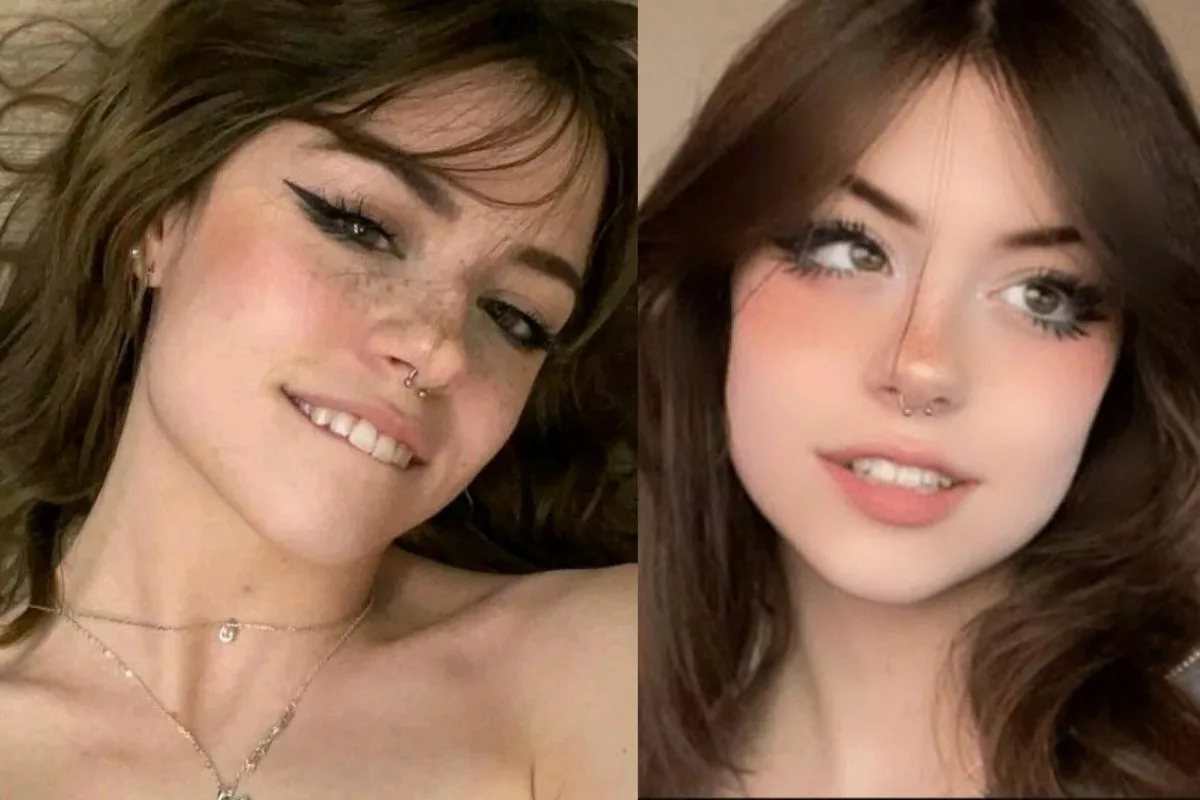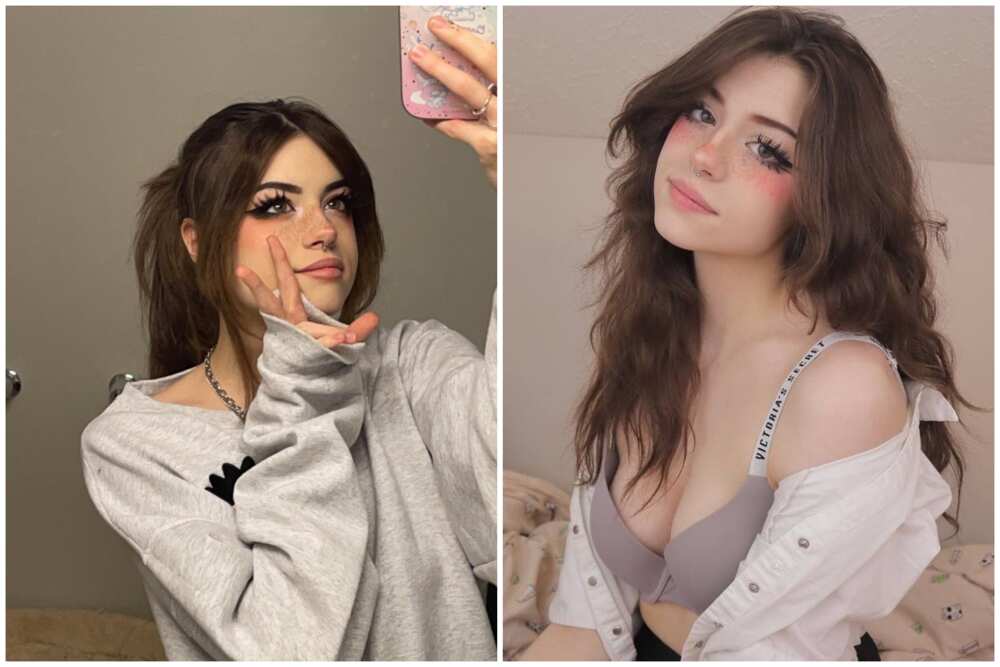Hannah Owo OnlyFans Leak: What You Need To Know Now
Has the digital age irrevocably blurred the lines between public persona and private life, leaving individuals vulnerable to the relentless scrutiny of the internet? The Hannah Owo OnlyFans leak serves as a stark illustration of these new realities, forcing a reckoning with the ethical and societal implications of online content sharing and digital privacy.
The narrative surrounding Hannah Owo, a prominent figure in the online content creation sphere, has been dramatically reshaped by a breach of privacy. This incident, which saw the unauthorized dissemination of intimate content from her OnlyFans account, has not only thrust her into the harsh spotlight of public attention but has also ignited a broader conversation about the responsibilities of platforms, the rights of creators, and the often-unforgiving nature of online culture. The repercussions of this leak extend far beyond the immediate shock and outrage, prompting critical examination of the legal frameworks, social norms, and technological safeguards that govern the digital realm.
| Category | Details |
|---|---|
| Full Name (Known) | Hannah Owo (also known as Hannah Kabel) |
| Online Presence | Active on multiple social media platforms, including TikTok, Instagram, and OnlyFans. |
| Primary Content Focus | Adult content creation, social media engagement, and lifestyle content. |
| Controversies | OnlyFans content leak, accusations of "Asian fishing." |
| Public Reaction to Leak | Mixed; ranging from shock and concern to criticism and debate over authenticity and ethical implications. |
| Career Impact | Significant impact on career, potentially affecting reputation, subscriber base, and future opportunities. |
| Legal and Ethical Considerations | Raises questions about digital privacy, content moderation, copyright, and the exploitation of creators. |
| Denial of Involvement | Hannah Owo has denied involvement, claiming the content was fabricated or manipulated. |
| Age | Not Publicly Disclosed |
| Authentic Website for Reference | Due to the nature of the topic, providing a reference to a specific website that directly confirms all details is challenging. Information is often pieced together from news reports, social media commentary, and discussions about the incident. It's important to be critical of the information found online and to verify details from multiple sources. For general information, sites like Wikipedia (though entries may be incomplete or evolving) or reputable news outlets covering the story can be consulted, keeping in mind that accuracy depends on the source. |
The saga began, as many digital dramas do, with an alleged leak. In the midst of this, various social media platforms were flooded with explicit content, purportedly featuring Hannah Owo. The rapid spread of this material ignited a wave of reactions: shock, disbelief, and, for some, a morbid curiosity. The incident immediately brought to the surface deeply ingrained societal anxieties regarding privacy in an era where almost everything is digitized. The authenticity of the leaked content became the subject of immediate debate, with supporters and detractors alike offering various perspectives. However, the debate, in many ways, missed the forest for the trees. Regardless of the veracity of the material, the fact remained: private material, intended for a restricted audience, had been distributed without consent, a violation of a fundamental right.
As news outlets and online commentators scrambled to make sense of the situation, a recurring theme emerged: the blurred line between public and private personas. Hannah Owo, like many content creators, had cultivated a public image, carefully constructed to resonate with her audience. But the leak offered a glimpse behind the curtain, into a space that was presumably intended to be private. This sudden juxtaposition of public and private, however, is a defining characteristic of the digital age. Social media has, in many ways, eroded the boundaries that once separated our online lives from our offline ones. For content creators, this line is even more precarious, with their livelihoods often dependent on the continuous sharing of personal details, sometimes including intimate content. This vulnerability, the inherent precarity of the creator economy, is a central issue in this unfolding drama.
The core of the controversy surrounding the leak touches upon core concepts within digital law and ethics. The unauthorized distribution of private content, often referred to as "revenge porn" or non-consensual pornography, is illegal in many jurisdictions. Such acts violate not only the victim's privacy but also their personal safety. The legal battles and social outcry that often accompany such incidents are evidence of the seriousness with which these violations are viewed. The speed with which such content can spread online also raises questions about the responsibility of social media platforms to moderate content and protect their users. In this instance, questions arose concerning what steps platforms took to remove and control the dissemination of the leaked content.
The incident also throws a light on the complexities of consent in the digital age. While consent is a cornerstone of ethical and legal conduct, its application can be complicated when dealing with online content. The question of whether the creation of content for a platform like OnlyFans constitutes a form of implied consent to have that content shared is a complex one. Some argue that creators, by sharing content on such platforms, implicitly accept a certain level of risk. Others maintain that consent is a crucial element, regardless of the platform, and any unauthorized sharing constitutes a violation. Moreover, the concept of informed consent comes into play; did the involved parties have a clear understanding of the potential risks associated with their actions?
- Movierulz Features Risks Alternatives How To Stream Safely
- Jameliz Benitez Smith Age Facts Social Media Star Latest Updates
Beyond the legal and ethical dimensions, the Hannah Owo leak sparked discussions about the exploitation of creators. The adult content industry has long been criticized for the power dynamics that often govern the relationships between creators and platforms. Creators, particularly women, face a range of vulnerabilities, including the risk of their content being stolen, used without their permission, or distributed without their consent. This incident also shed light on the economic realities of the creator economy. The financial implications for Hannah Owo, including the potential loss of income, the expense of legal challenges, and the impact on her reputation, were considerable. The issue highlighted the broader context of digital content creation, where creators often face precarious financial positions and a lack of control over their work.
The debate over the authenticity of the leaked material further complicated the scenario. Hannah Owo, through her legal representatives, has vehemently denied any involvement, asserting that the videos were fabricated or manipulated. These claims emphasize the growing sophistication of deepfake technology and the challenges of verifying the authenticity of online content. Deepfakes, which use artificial intelligence to create realistic but fabricated videos, pose a significant threat to both individuals and society at large. They can be used to spread misinformation, damage reputations, and even influence elections. The possibility of deepfakes adds a layer of complexity to incidents like the Hannah Owo leak, making it difficult to determine the truth and further blurring the lines between reality and digital deception.
The reactions to the incident among her followers and the wider online community were divided. Some fans expressed shock and disappointment, while others expressed sympathy and support for the content creator. Online forums and social media platforms were filled with discussions regarding the ethics of viewing and sharing leaked content. Some users took steps to boycott the sharing of the material, while others continued to consume and share it, contributing to the spread of the material. This polarization is a typical characteristic of social media's impact on how we process sensitive information, and this further reinforces the need for critical thinking and ethical awareness online.
The ramifications of the leak extend far beyond Hannah Owos personal and professional life. The incident has also fueled a wider conversation about online privacy and digital security. The vulnerability of personal data in the digital age has become increasingly apparent. Data breaches, hacks, and leaks are increasingly common, raising serious concerns about the security of personal information and the potential for misuse. The Hannah Owo leak serves as a cautionary tale, highlighting the need for greater vigilance in protecting digital privacy and the importance of developing robust security measures.
The incident is not isolated. Many content creators, and public figures in general, have experienced similar breaches of privacy. The frequency of these incidents underscores the need for platforms and tech companies to take stronger measures to protect the privacy of their users. This also means the adoption of stronger content moderation practices and greater efforts to prevent the spread of leaked or unauthorized material. Furthermore, it highlights the importance of educating users about the risks of online sharing and the potential consequences of having their private information exposed.
The context surrounding the case also involved complex social issues. Accusations of "Asian fishing" against Hannah Owo, as well as the implications of cultural appropriation within the context of online content creation, should not be ignored. The conversation must continue to incorporate the multifaceted nature of modern-day content creation, where creators often must navigate the intricate terrain of identity, authenticity, and representation.
The impact of the leak on Hannah Owos career is still evolving. The incident has undoubtedly affected her reputation, potentially leading to a decline in her subscriber base, as well as impacting her opportunities for brand partnerships and collaborations. The long-term consequences of the leak remain uncertain, but the incident is expected to shape her career and public image for years to come. Furthermore, the incident raises questions about the longevity and stability of the creator economy and the inherent vulnerabilities of those who rely on online platforms for their livelihood. Financial losses, as well as the impact on a creators mental health, are major consequences that must be carefully considered.
Looking forward, the Hannah Owo incident serves as a powerful reminder of the ethical and legal challenges posed by the intersection of technology, privacy, and content creation. It emphasizes the need for a multifaceted approach, including stronger legal protections, improved platform practices, and greater public awareness. This also calls for the development of ethical guidelines and policies to navigate the complex issues surrounding online privacy. The conversation should continue to focus on holding platforms accountable, empowering creators, and protecting the rights of individuals in the digital age.
Ultimately, the Hannah Owo OnlyFans leak provides a valuable lesson. Its a reflection of a society grappling with the consequences of a digitally-driven world. It invites critical thinking about the delicate balance between freedom of expression, privacy, and the ethical responsibilities of both individuals and platforms. It calls for deeper consideration about the future of content creation and the need for a more just and secure online environment.

Hanna Owo OnlyFans Leak The Story Behind The Headlines And What You

Hannahowo Your Essential Guide to the Enchanting Polish Village

Hannah Owo's Private Content Exposed The Ultimate Leak Extravaganza